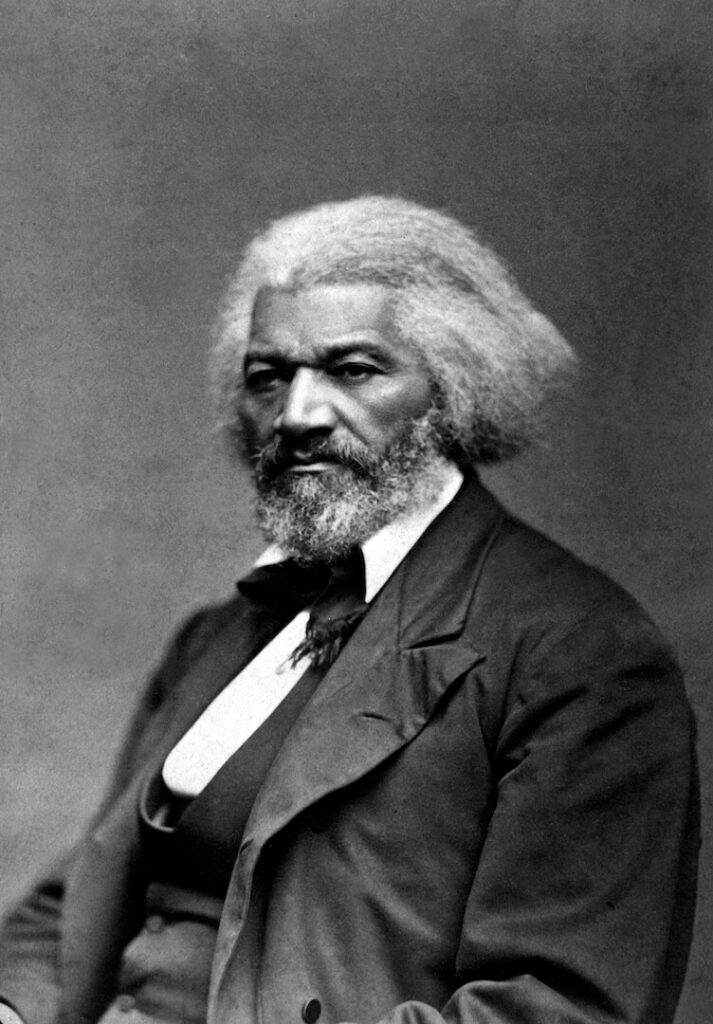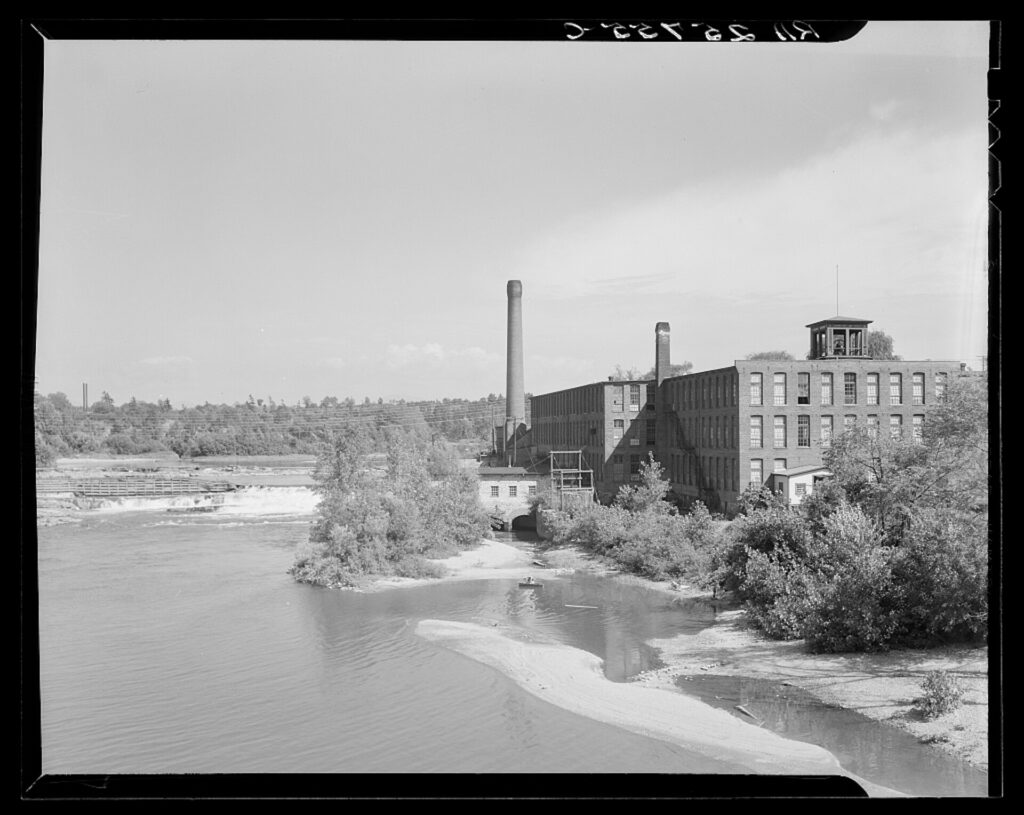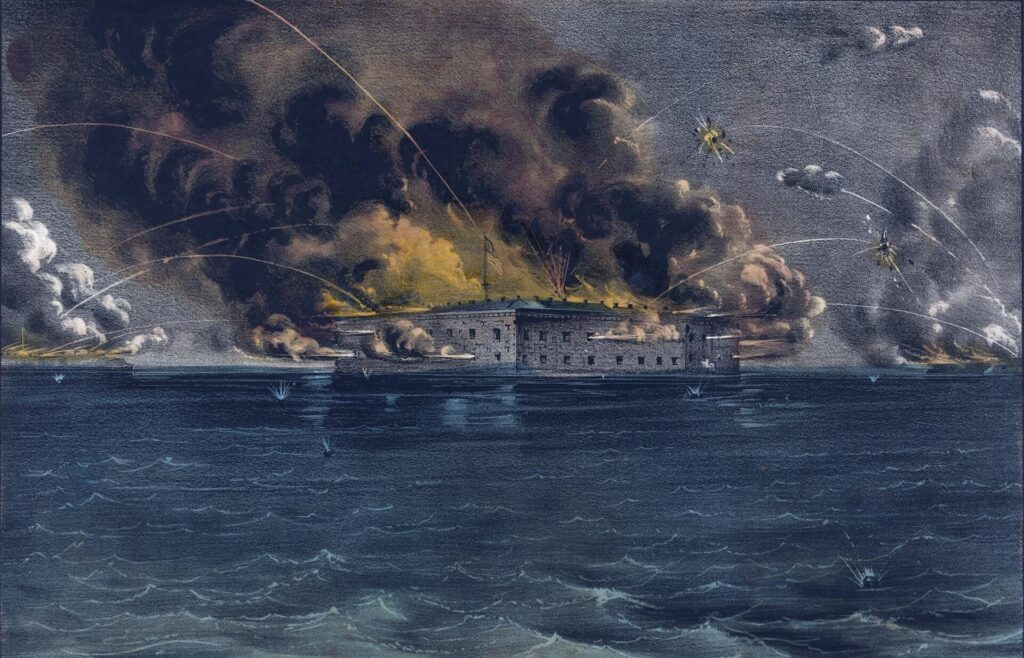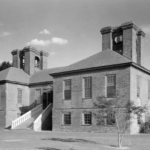“A house divided against itself cannot stand…” – Abraham Lincoln, Springfield, Illinois
June 16, 1858
The event that triggered the American Civil War was the Confederate army’s opening fire on a federal garrison at Fort Sumter on April 12, 1861. But what series of crises led to the events of that fateful day? Was a Civil War inevitable when Abraham Lincoln was elected president in November 1860?
Questions surrounding the outbreak of the Civil War remain hotly contested to this day. The debates, though, tend to center around the respective influence of each contributing factor rather than the factors themselves.
Essentially, the reasons for the Civil War are clear, but historians will argue over which reason was the driving force. Below, we’ll touch upon the four most commonly identified reasons.
And if you’re interested in taking your study of the American Civil War a step further, please consider joining us on one of our Civil War Battlefield Tours in Virginia.
We also offer Civil War Battlefield Combo Tours if you’d like to explore multiple battlefields in one day and Custom American Civil War Tours if there’s a specific aspect of the Civil War you would like to investigate with one of our historian guides.

Slavery
America’s peculiar institution is unquestionably at the heart of all Civil War history and is regarded by many as the true cause of the war.
The practice of chattel slavery (the trading of human beings as property that could be owned) was a controversial issue in the United States from the time of the Declaration of Independence.
Prominent figures, such as Benjamin Franklin, became dedicated abolitionists in the late 18th century, and the Northern states began outlawing the practice in 1777 with the Constitution of Vermont. By 1804, all Northern states had banned slavery.
However, the ending of the practice in the industrialized North did not do much to deter Southern states from continuing their trade in enslaved people, nor did it mean enslaved people could find freedom in the North (they’d need to reach Canada to guarantee that).
The predominantly agricultural Southern states relied heavily on the institution of slavery. The labor of enslaved peoples guaranteed profits on the enormous farms and plantations that covered the south.
The growth of tobacco, cotton, rice, and other crops ensured that wealthy and influential landowners stayed rich, and kept poor white workers in employment.
The rise of abolitionism in the North throughout the 19th century was cause for great concern among many Southerners who feared that Northern interference with their state laws and economies would devastate their agriculture.
And for many citizens, black enslaved people were simply not to be treated equally, they were to be regarded as inferior. The growing gulf in attitudes towards slavery was a sign of Northern and Southern incompatibility.
Abraham Lincoln was elected as US president in 1860. Though Lincoln believed in the gradual emancipation of slaves rather than true abolitionism, his election was the final straw for many Southerners. Many were sure he was going to outlaw slavery and they wouldn’t stand for it.

The Economy
Strongly linked to the institution of slavery were the different economies of the North and South.
The Northern states of the US had gone through rapid industrialization and urbanization. Immigrants from Ireland, Germany, Poland, Russia, Scotland, and many other countries, flooded into the country to join the Northern workforce.
In the South, on the other hand, the economy was entirely propped up by the institution of slavery. Although there were some farming communities in the South that managed to flourish without the use of enslaved people, the largest farms and plantations needed this form of free labor.
And it was not only the wealthy who depended on slavery. With the entire agriculture economy supported by the institution, its demise would inevitably lead to unemployment among poor white workers.
Due to its influence on the economy of the South, the shameful institution of slavery was nothing short of an existential problem for the Southern way of life.
Sectionalism
It is a question that many would recognize today, something that remains a hot topic in politics – identity.
Nationalism, as we know it today, was largely a European invention of the late 19th century. In the past, people were far more likely to identify with their town, city, or region than with their nation.
In the United States, this expressed itself in people’s loyalty to their state and the slippery idea about the North and the South.
The American identity, as we understand it now, grew in the wake of the American Civil War. Before the conflict, Northerners and Southerners believed that they came from quite distinct places, defined by different worldviews (a belief largely rooted in fact, as outlined above).
This cultural division leads us to our final reason for the war…

States’ Rights
The question of identity is connected to an important area of debate in the lead-up to the Civil War – states’ rights.
Fearful of Northern interference in the institution of slavery, Southern states were increasingly pushing for a strongly federalist system, where states would determine their own laws and define their own way of life, with the central government in Washington only involving themselves with larger national interests.
Meanwhile, there was increasing concern about the establishment of new states and whether or not they would be slaveholding territories. The North wanted to ensure the new states would be slave-free, while the South wanted more states where slavery was normalized.
Some historians have argued that states’ rights are the topic that trumps all others in discussions of what caused the Civil War. However, this argument could be said to be disingenuous.
After all, there is no question that the topic of slavery lay at the core of discussions around states’ rights.
What we can say for sure is that the four reasons described above were all inextricably interconnected and pulled the North and South towards the eventual, tragic war.
This closes our blog on the main reasons behind the Civil War. However, we do recommend you check out our selection of Civil War Battlefield Tours in Virginia.
If you have any questions, please get in touch.
Want to continue reading about American Civil War history? Next, read Was the American Civil War Avoidable?.


